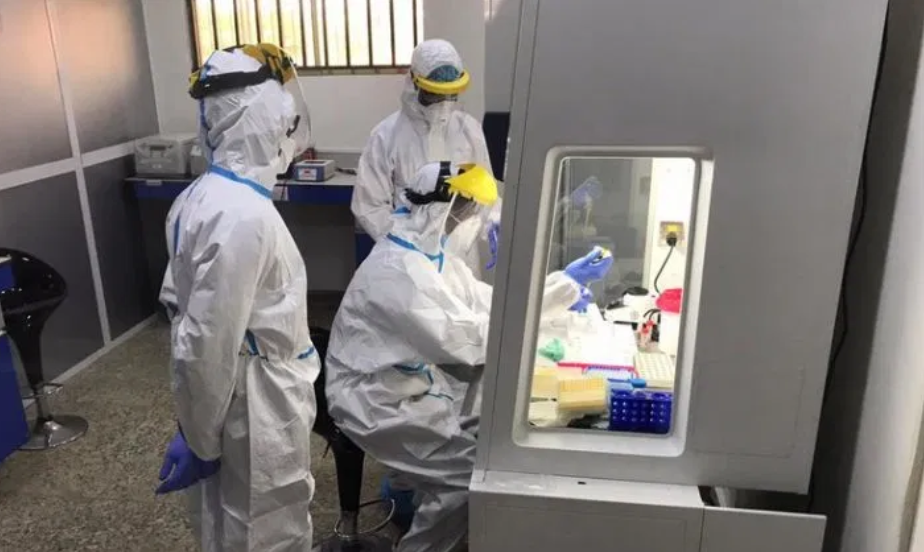
The U.K. imposed a fresh lockdown across London and surrounding areas of England to combat a new strain of Covid-19.
Scientists are hurrying to understand why a new strain of the coronavirus that emerged in England in September appears to be spreading far more rapidly than earlier variants.
The early conclusion, according to British scientists, is that the virus has mutated to change the so-called spike protein on the surface of the virus, increasing the protein’s ability to cling onto and enter human cells. These changes allow the mutation, known as N501Y, to spread 70% faster than earlier versions of the virus, early analysis suggests.
Neville Sanjana of the New York Genome Center says there is no evidence to suggest the variant has spread to the U.S.
Viruses mutate all the time and coronaviruses less so than some others, such as the ones that cause influenza. Sometimes these accidental changes alter the attributes of the virus and sometimes not.
Scientists have identified 23 genetic changes on the new variant, an unusually large number, some of which are associated with changes in the proteins the virus makes.
CORONAVIRUS AND THE WORLD
Latest Updates
U.K. Imposes Fresh Lockdowns to Curb New Covid-19 Strain
Covid-19 Vaccines Are Slow to Reach Rural America
New Covid-19 Surge Sweeps Across Latin America
Covid-19 Vaccine Makers Tap Contractors to Produce Billions of Doses
Australia’s Covid-19 Defenses Have a Weakness: Aircrews
For Small Firms, Covid-19 Cuts Deeper
The spike protein is located on the top of the spikes depicted on graphic representations of the virus and give it the crown-like appearance from which the coronaviruses get their name. The spike protein contains amino acids that use an enzyme in the body, called furin, to dissolve cell coatings and allow the virus to enter.
Three main questions are now being investigated: Is the new variant more contagious, is it more likely to be fatal or cause serious illness, and is it more likely to defeat the body’s immune responses, including those encouraged by vaccines?
The provisional answers to those questions, as outlined by British scientific advisers on Saturday, are yes, no and no.
Patrick Vallance, the British government’s chief scientific adviser, said on Saturday that three types of study—of the virus’s genetic makeup, statistics and in the laboratory—have come together to show that this variant is significantly more prone to be transmitted among people than earlier strains.
He said the variant had first occurred in September either in London—where it was identified on Sept. 21—or in the nearby county of Kent, where it was found on Sept. 20. By mid-November, 28% of cases in London were attributable to the new variant. In the week starting Dec. 9, it was responsible for 62% of cases in the capital.
STAY INFORMED
Get a coronavirus briefing six days a week, and a weekly Health newsletter once the crisis abates: Sign up here.
“It is becoming the dominant variant; it is beating all the others in terms of transmission,” he told a press conference on Saturday.
A preliminary description of the variant, published online by scientists associated with a British effort to track genetic variations of the virus, suggested the new strain may have developed in someone suffering from chronic infection, possibly because of a weakened immune system.
Mr. Vallance said the conclusions that the mutation was less dangerous and unlikely to compromise the effectiveness of vaccines were preliminary. He said there were theoretical reasons why the new variant might alter the immune response, though there was no evidence so far that was the case.
“The working assumption is that the vaccine response should be adequate for this virus, but we need to keep vigilant about this,” he said.
According to Dr. Sanjana of the New York Genome Center, “Single mutations will generally not alter vaccine performance.”
British officials said they had no evidence the mutation was present abroad, though scientists say a similar mutation has appeared independently in South Africa.













